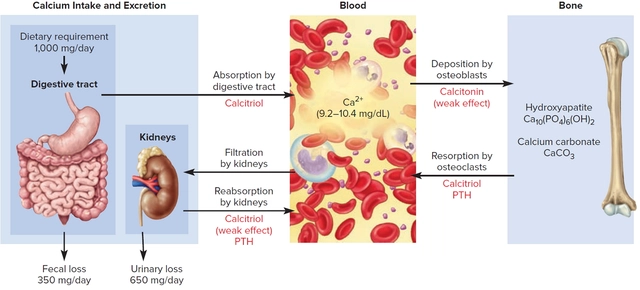Understanding Lansoprazole and its Importance
As someone who is always keen on learning about health and medications, I've recently come across Lansoprazole and its impact on vitamin and mineral absorption. Lansoprazole is a proton pump inhibitor (PPI) that is widely used to treat various gastrointestinal issues, such as acid reflux and peptic ulcers. It works by reducing the amount of acid produced in the stomach, which, in turn, can alleviate the symptoms associated with these conditions. However, as with any medication, it is crucial to be aware of its potential side effects and interactions with other substances in our body. That's why I wanted to dive deeper into the subject and share my findings with you.
The Relationship between Lansoprazole and Nutrient Absorption
While Lansoprazole can indeed provide relief for those suffering from gastrointestinal issues, it is essential to understand its potential impact on our body's ability to absorb essential vitamins and minerals. This is because the reduction of stomach acid can interfere with the normal digestive process, which is necessary for breaking down and absorbing nutrients from the food we eat. In this section, I will discuss how Lansoprazole can affect the absorption of specific vitamins and minerals and the potential consequences of this interaction.
Calcium Absorption and the Risk of Osteoporosis
One of the primary concerns regarding the use of Lansoprazole is its potential impact on calcium absorption. Calcium is an essential mineral that is necessary for maintaining strong bones and teeth, as well as supporting various cellular functions. Stomach acid plays a vital role in dissolving calcium in the food we eat, allowing it to be absorbed into the bloodstream. By reducing stomach acid production, Lansoprazole can potentially impair calcium absorption, leading to an increased risk of developing osteoporosis and bone fractures, especially in the long term.
Iron Deficiency and Anemia
Iron is another essential nutrient that can be affected by the use of Lansoprazole. Iron is necessary for the production of hemoglobin, which is responsible for carrying oxygen throughout our body. Reduced stomach acid levels can interfere with the breakdown and absorption of iron from food, potentially leading to iron deficiency and anemia. Symptoms of iron-deficiency anemia include fatigue, weakness, and shortness of breath. If you are taking Lansoprazole and have concerns about your iron levels, it is essential to discuss this with your healthcare provider.
Vitamin B12 Absorption and Neurological Consequences
Vitamin B12 is another nutrient that can be impacted by the use of Lansoprazole. This vitamin is essential for the proper functioning of our nervous system, red blood cell production, and DNA synthesis. Stomach acid is necessary for separating vitamin B12 from the proteins found in food, allowing it to be absorbed into the bloodstream. As Lansoprazole reduces stomach acid production, it can potentially impair vitamin B12 absorption, leading to deficiency. Vitamin B12 deficiency can cause various neurological symptoms, such as numbness and tingling in the hands and feet, as well as cognitive difficulties.
Strategies to Minimize Nutrient Absorption Issues
While the potential impact of Lansoprazole on nutrient absorption is a concern, there are several strategies that can be employed to minimize these risks. In this section, I will discuss some possible approaches to ensure that you maintain optimal nutrient levels while taking this medication.
Supplementation and Diet Modifications
One of the most effective ways to manage potential nutrient deficiencies while taking Lansoprazole is through supplementation and dietary modifications. Your healthcare provider may recommend taking calcium, iron, and vitamin B12 supplements to ensure that you are getting adequate amounts of these essential nutrients. Additionally, incorporating foods rich in these vitamins and minerals into your diet can help maintain optimal levels. For example, consuming dark leafy greens, dairy products, and fortified cereals can provide additional calcium, while foods like red meat, poultry, and legumes can boost your iron intake.
Monitoring and Follow-up
Regular monitoring of your nutrient levels is crucial when taking medications like Lansoprazole. This can help identify any potential deficiencies early on and allow for appropriate interventions, such as supplementation or dosage adjustments. Make sure to discuss any concerns you have with your healthcare provider and schedule regular check-ups to ensure that you are maintaining optimal nutrient levels while taking Lansoprazole.
In conclusion, while Lansoprazole can be an effective treatment for various gastrointestinal issues, it is essential to be aware of its potential impact on nutrient absorption. By understanding the risks, implementing strategies to minimize deficiencies, and regularly monitoring your nutrient levels, you can ensure that you maintain optimal health while taking this medication. Always consult your healthcare provider with any concerns or questions related to your medications and overall well-being.






Kajal Gupta
May 12, 2023 AT 16:40Hey folks, great rundown on Lansoprazole’s hidden side‑effects! 🎉 It’s fascinating how something that tames acid can quietly hijack calcium and B12, isn’t it? A dash of colorful language aside, the takeaway is simple: watch your nutrient intake while on PPIs. Stay savvy and keep the conversation rolling.
Zachary Blackwell
May 14, 2023 AT 19:22Did you ever wonder why the pharmaceutical giants love pushing PPIs like Lansoprazole? 🤔 They’re not just selling heartburn relief, they’re subtly nudging us toward a lifetime of supplements and follow‑up visits. It’s a clever revenue loop, and the nutrient‑deficiency angle keeps us dependent on their next product. Keep your eyes peeled!
prithi mallick
May 16, 2023 AT 22:04When we look beyond the pills, we glimpse the delicate dance between our stomach’s fire and the minerals that build our very essense. It reminds me that health is not a static state but a flowing river, sometimes needing a bridge when the current is altered. Take heart, dear readers, and let this knowledge guid you to ask your doctor about gentle checks. Remember, even a small ripple can echo across the whole body, so stay curious and kind to yourself.
Michaela Dixon
May 19, 2023 AT 00:46Wow the idea of a stomach fire acting like a hidden gatekeeper for minerals is both poetic and practical. Imagine the acid as a gentle rain that dissolves tiny crystals of calcium so they can slip into our bloodstream. When Lansoprazole dims that rain the crystals linger untouched like snow on a summer road. This can set off a cascade of subtle hints that our bodies start to whisper. First the bones might feel a little less sturdy after months of quiet depletion. Then fatigue creeps in as iron struggles to bind with hemoglobin. Vitamin B12 that shy traveler may get left behind at the gastric doorstep. Over time the nervous system might send tingles as the deficiency builds. Some people notice a slight wobble in their balance or forgetfulness that seems unrelated to any obvious cause. The beauty of recognizing this pattern is that it empowers us to act before a fracture or anemia takes hold. A simple blood test can reveal the drop before the symptoms become glaring. Supplementing with calcium citrate iron bisglycinate or sublingual B12 can restore the flow. Dietary tweaks like adding fermented foods can also coax the stomach to produce just enough acid naturally. Monitoring with a doctor ensures the dosage of Lansoprazole remains appropriate and not excessive. In the grand scheme this interplay reminds us that any medication reshapes an ecosystem inside us and we must tend to that garden with care and observation. So keep listening to your body’s signals and partner with your healthcare provider to keep the mineral highways clear.
Dan Danuts
May 21, 2023 AT 03:28Stay active and keep those bones strong!
Dante Russello
May 23, 2023 AT 06:10Absolutely, Dan! Your enthusiasm is contagious, and remembering to supplement calcium, iron, and B12-especially when using Lansoprazole-can make a huge difference, for both bone health and overall vitality. I’d add that regular blood panels, perhaps every six months, give us a clear picture, allowing timely adjustments; don’t forget to discuss dosage reductions with your physician, if possible. Let’s keep each other motivated, share our supplement routines, and celebrate the small wins along the way.
James Gray
May 25, 2023 AT 08:52Hey team, just wanted to shout out how awesome it is that we’re all paying attention to those sneaky nutrient gaps while on Lansoprazole! It’s totally definately worth the extra effort to pop a B12 gummy or a calcium chewable, because strong bones = happy life. I’ve seen friends who once felt tired and now they’re back to jogging, thanks to a simple iron boost. Let’s keep sharing tips, cuz together we can beat any deficiency that occurrs.
Scott Ring
May 27, 2023 AT 11:34Thanks for the upbeat reminder, James. It’s great to see how a proactive approach to supplementation can bridge cultural dietary gaps and keep everyone thriving. Keep the positivity flowing and let’s keep learning from each other.
Shubhi Sahni
May 29, 2023 AT 14:16Exactly, James! Your optimism is a beacon, and I’d like to add that tracking your nutrient intake with a simple app can provide visual feedback, reinforcing those healthy habits; remember to schedule quarterly check‑ups, and don’t hesitate to ask your doctor about the best supplemental forms-chelated minerals often absorb better. Together, we can turn a potential deficiency into an empowering health journey.